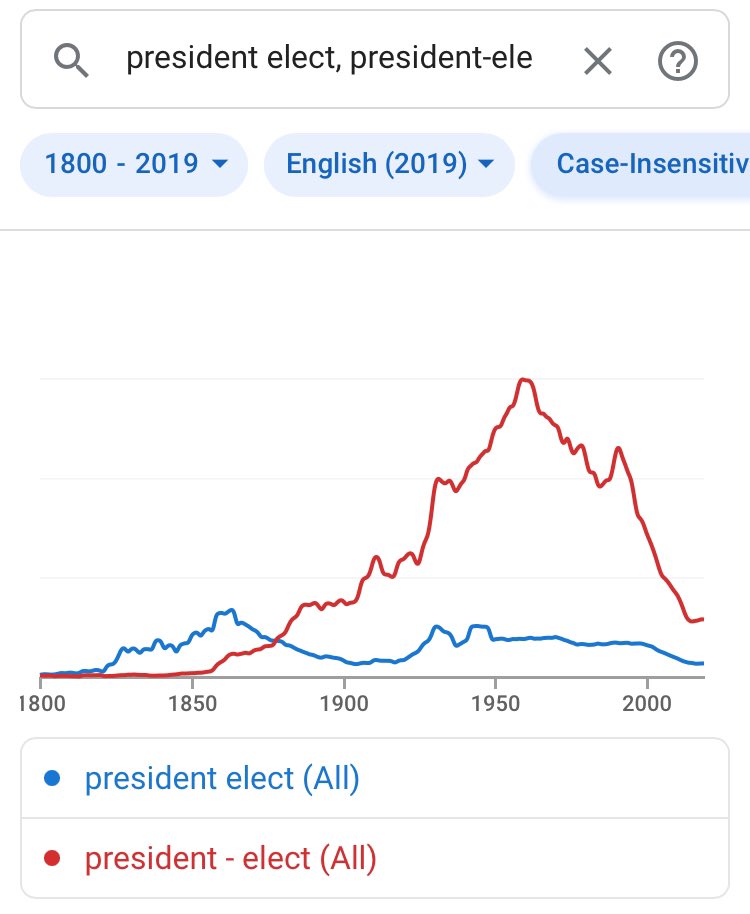
McConnell playing the good democrat is whiplash-inducing.
Ah there's the Democrat-blaming and bothsidesing. Was worried for a minute he might forget to go there.
Schumer's kicking off shining city on a hill time.
Ted Cruz what are you saying? Feelings matter? More than votes?
Going full Hayes-Tilden now. Yup. That worked well then…
"I would urge we follow the precedent of 1877."
No one should ever hold up 1877 as an example of good governance. Ever.
No one should ever hold up 1877 as an example of good governance. Ever.
Toomey getting the history right. It's not analogous to 1877.
I lived on Capitol Hill for a year, walking past the Capitol many many times. It seemed completely beyond the pale that the barricades around it could be breached, and *while* a vote count is going on.
Police being unprepared for this when it was announced widely is on the one hand unbelievable. On the other hand, it's par for the course.
There always seem to be some protesters they're way more worried about than others. I wonder why that is, can't quite put my finger on it…
There always seem to be some protesters they're way more worried about than others. I wonder why that is, can't quite put my finger on it…
They're inside Statuary Hall. Absolutely crazy.
German Neo-Nazis tried to storm the Reichstag this summer. They did not succeed but it was seen as a shameful failure of the authorities.
bbc.com/news/world-eur…
bbc.com/news/world-eur…
Looks like the American far right was more successful.
I am literally shaking, an ocean away.
PBS is interviewing a Trumpist who got inside and it's hard to watch. Not an inkling of understanding he's guilty of anything.
Completely absurd and shocking situation.
https://twitter.com/ClaraJeffery/status/1346909171220942848
Joe Biden will continue to try to "heal" the country and bridge the divide, but seriously… how do you reach conspiracists chanting "USA USA" while trying to steal a democratic election?
They're doing so standing on the steps of the Capitol, illegally breaking in while votes are aupposed to be counted.
This is a siege.
There's a lot of blame to go around for this. But there's one person who is responsible above all.
How he's treated by his party after January 20th will say a lot about what hope there is for democracy to reassert itself forcefully in America.
How he's treated by his party after January 20th will say a lot about what hope there is for democracy to reassert itself forcefully in America.
Since we heard the old "shining city upon a hill" line earlier: the point of it was always that the world would see everything.
Especially the failures.
It is sure seeing them now.
Especially the failures.
It is sure seeing them now.
https://twitter.com/marceldirsus/status/1346921281376104450
About those protesters not being held back by the layers and layers of barriers and policing:
https://twitter.com/bubbaprog/status/1346920198461419520
Biden calling today's events "an assault on the most sacred of American undertakings."
Biden: "I call on President Trump to go on national television now to fulfil his oath and end… this siege."
Biden: "So President Trump: step up!"
Biden departs the stage saying "enough is enough is enough."
The news that should have been the big news today:
https://twitter.com/kantrowitz/status/1346927102466035712
More on the absolute failure in security:
https://twitter.com/sugaspov/status/1346919943238000645
• • •
Missing some Tweet in this thread? You can try to
force a refresh




